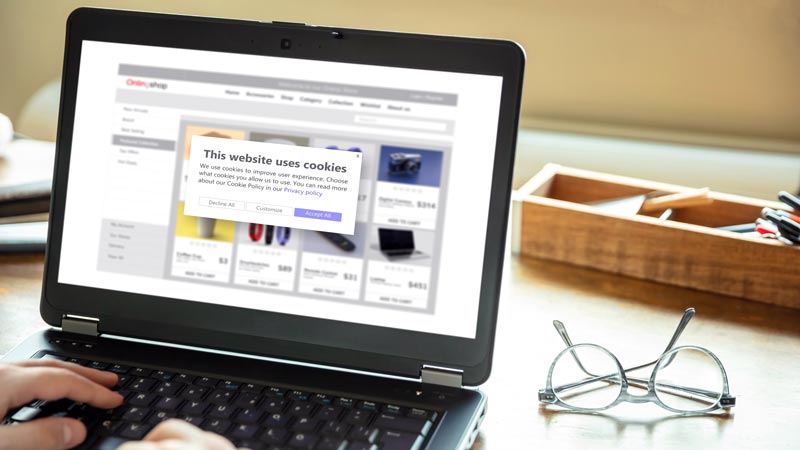3 Times You Should Not Accept Cookies
Cookie popups are everywhere. There’s no doubt you’ve experienced one or two in your lifetime. They are those popups or banners that appear the first time you visit a website asking for your consent to store data about you. Laws like the General Data Protection Regulation aim to protect online privacy. But in practice, they have led to a big step backward in user experience.
Once the calling card of sketchy or even malicious websites, noisy banners and popups have become commonplace on legitimate websites trying to comply with the ruling that they must have your consent to store any information about you (cookies).
Typically, we click “accept” and think nothing more of it. But should we be so trusting?
For the most part, if you’re on a trusted site that is encrypted and not sharing personal information, you can accept cookies and have nothing to worry about. However, there are 3 times you should not accept cookies — continue reading to learn about them.
1.) When You’re on Unencrypted Websites
Browsing on an unencrypted website means the data (like personal information, device information, etc.) going back and forth between you and the website you’re on can be accessed by hackers if they are on the same network as you. You want to avoid unencrypted sites anyway, but you’ll definitely want to avoid them if you’re on a public Wi-Fi network.
You’ll know you’re on an unencrypted website if there is an open lock symbol next to the URL of the website you’re on. If the site is encrypted, you’ll see a closed lock, like in the screenshot below.

If for whatever reason you need to access an unencrypted website, you can use your browser in private or incognito mode, which blocks cookies by default.
2.) When You’re Accepting Third-party Cookies
We’ve discussed the differences between first-party cookies and third-party cookies in an earlier post.
But as a quick refresher, first-party cookies are created by the developers of the website you’re visiting and help improve your user experience, like remembering your username or keeping items in your shopping cart as you explore other pages of the website. They benefit you and the website.
“There are settings in your browser you can configure to decline all third-party cookies if you want to be extra cautious.”
Third-party cookies are created by someone not affiliated with the website you’re visiting and often are used to track you across different websites with ads for products you might like. Your browsing behavior also can be sold to data brokers and a profile of you as a consumer is created across other websites. They only benefit the third party.
When you access a website that utilizes third-party cookies, you will have to “accept” their usage. Always decline.
There are settings in your browser you can configure to decline all third-party cookies if you want to be extra cautious.
3.) When You’re Sharing Personal Information
Do not accept cookies on websites that deal with private information, such as banking websites or medical websites. Some of these websites might use first-party cookies to track user activity (such as how long you spend on the site or the most popular pages) but it won’t capture personal information. Many websites have privacy policies that will explain what information is captured and how they use it.
If you have accepted cookies during any of the aforementioned circumstances, don’t panic. Browsers allow you to delete cookies and other site data, which you’ll generally find under a privacy setting. The next time you visit a site that asks you to accept, you can then decline.
Hire IT Services in West Michigan
Contact Hungerford Technologies to see how we can help keep your business running smoothly while increasing productivity, security and profitability.











